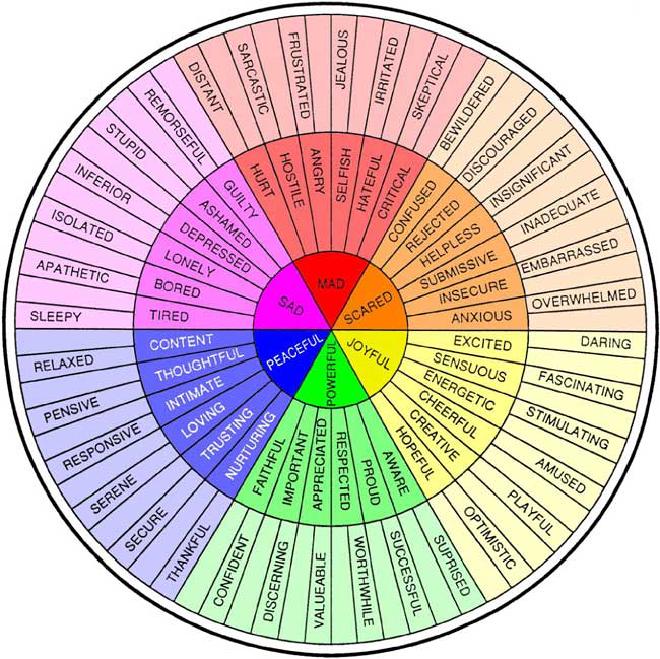Like a lot of other people, I grew up in a house where we didn’t really discuss emotions at all — and certainly not _negative _emotions.
In fact, it wasn’t until I was in my 30s that I was good at differentiating between them and expressing them clearly. I’d learned that you said you were “mad” as an umbrella term and that should suffice.
Not angry, frustrated, disappointed, irritated, or anything else that could be more precise. More helpful.
I also am a person who has struggled with depression and anxiety. Now, some of that is clearly attributable to some trauma. But a study I read recently has led me to wonder if being raised in an environment where others didn’t clearly identify their feelings (and therefore I never learned how to either) didn’t contribute to those things.
Depression and Being Unable to Talk in Precise Terms About Negative Emotions #
That study found that participants who were able to describe their own emotions in nuanced and exact ways were significantly less likely to experience depression.
Being able to articulate whether they were “embarrassed,” “ashamed,” “disappointed,” or “frustrated” instead of expressing this in more general terms like, “I feel bad,” or “I’m upset.”
One caveat: This study’s participants were teenagers. But I still think it has merit. After all, every adult was once a teenager, weren’t they?
But yeah. Interesting study. I did a check-in with others in my life that I know have struggled with depression, and while anecdotal, I found that all of them had struggled in their past to articulate their exact emotions. And especially negative ones.
The Feeling Wheel #
If you’re struggling to find the words to describe your own feelings, don’t despair. Here’s one tool that may help:

This is the feeling wheel. It was originally developed by Gloria Wilcox.
True, you still have to introspect and match your emotions to the words listed on it. But it’s a good place to get started if you’re having trouble finding the right words for how you feel.
*
This post is part of an ongoing Poly Land feature called Psyched for the Weekend, in which I geek out with brief takes about some of my favorite psychological studies and concepts. For the entire series, please see this link.

